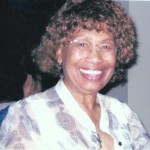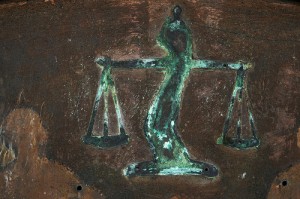Stealing Our Language
By Gwendoline Y. Fortune
Food and love, who (and what) we vote for, what we deem good or bad, what we want and hate—all rise from attitudes and choices. Our goal is survival—by any means necessary—said Jean-Paul Sartre, and Malcolm. Spiritual and emotional survival is not, usually, conscious.
Stealing the Language, The Emergence of Women’s Poetry in America, by Alicia Suskin Ostriker, is a favored book. The 1986 copyright suggests “back-in-the-day” to our twenty-first century students. Attitudes are important, learned in family, community, the Bible, the Bhagavad Gita, the Torah, the Koran, and “old wives’ tales. TFW readers already understand what Ostriker deliciously chronicles: male cultural control, institutional denial, and limits on women. Before the nation began, Ann Bradstreet, colonial, pilgrim mother, was enabled by her brother-in-law, John Woodbridge, to become the first woman poet published, in 1650, in Massachusetts Bay Colony. Centuries later, there is modest change for women, poets, and more.
Phyllis Wheatley, African female captive, wrote in the 1770s. She was allowed self-expression because her owner, white, male John Wheatley, wanted to demonstrate that a representative of “Darkest Africa” was more than a sub-human creature.
Ostriker writes of poets, but her stories reflect every woman with a creative mind and ability. Gender, race, cultural denial, and limitation have not disappeared from the wall that separates “in” from “out.”
Ostriker tells of Bradstreet’s benefactor Woodbridge’s ambivalence. He assured readers that she was more than competent with “her exact diligence in her place.” Ill-ease with a woman’s intelligence was the need to compare her with men, to hold the female writer suspect. Wheatley the African’s poem, “Niobe in distress for her children slain by Apollo” invoked surprise for the African child’s mastery of the European—the superior. Ostriker describes the poem as “veiled acknowledgement of Wheatley’s own powerlessness.” She was captive in her creativity, psychologically and physically alien.
More than a story of women writers, Stealing the Language repeats the rhythms of nature: tides, birth, death, the gift of the “outsider,” “the other,” the unknown cosmic dark matter. The creative woman remains enclosed, languishing in a climate of control, weakening to exhaustion.
Hard-fought and hard-won women’s rights have, recently, accrued in the world’s perpetual amnesia. What does it mean for the creative woman with her “A-ha,” like the first water touching the hand of mute Helen Keller? Social attitudes felt by Ann Bradstreet and Phyllis Wheatley remain. How would we know if words more beautiful than Shakespeare’s are in a dusty trunk, jotted by a woman, unseen?
Women writers explore and scratch invisible “wailing walls”: censorship. Ali Baba’s “Open Sesame” is lost. “Soul sisters” have circumscribed, or circumcised, access. Gatekeepers are not exclusively male. The affliction/addiction is rampant in the environment of “the marketing model,” modern society, peanut to art gallery, video to big screen.
Writers are the only creative workers whose work is denied access before its intended audience knows it. Graphic artists do not confront the identical fences of academic specialties, editors, publishers, promoters, and reviewers. Graffiti artists spray fences Writers no longer have street corner soapboxes or mimeographed pamphlets. The Internet has not, yet, found passages for the writer beyond “pop” commercialism.
How does a woman of color respond to the editorial comment, “She doesn’t write the black experience?” Her experience is neither sharecropper nor ghetto. It is middle-class and stifling parameters.
…wonderful story teller…appreciated the dynamic…authenticity…honor the tradition of oral history—“until the market proves more buoyant, I am pursuing very little fiction…
…admire the writer’s work… this isn’t a fit for our fiction list…
…very interesting concept….nice job setting up the story…I didn’t find the execution as strong…not as drawn in as I would have liked…didn’t get the kind of emotional connection…(not)strong enough for our list…
intrigued by the premise…did not connect with the characters…
…thought this was a very compelling premise—love the intersection of history and present day, … the idea of family stories being passed down…did not feel the writing was quite strong enough...
The pattern is “fit,” and undefined, “strong.” Previously, writers for whom publishers saw potential were given instructive criticism, how to improve—defining that “strong.” Advice was not contradiction. Contemporary publishing follows demographics, with no interest in a productive, cultural asset—the written word. Writing is an inherent need to communicate. Women, nurturers, and artists from diverse “worlds” are/become invisible.
The power of the gatekeeper is deadly for artists and civilization in a world where worship is at the altar of “pop culture.” The “celeb-pop” bubble is supreme. Like housing and investment bubbles, perhaps?
Alicia Ostriker’s gatekeepers are micro-specimens. The theft of variety is macro. The attitude in the world of consumerism eclipses diverse thought and expression. Like quicksand, the appearance is benign, seductive, and destructive. Knocking at the gate a writer whispers, “Who made you God?’
Students said, “You should write.” Naïvely, I wrote. How aware of science are gatekeepers? What is “objective” in the reality of unconscious attitudes?
Freedom is ephemeral, especially for women, the majority that is labeled minority.
“Stealing the language” is alive and functioning. Women have unique need and responsibility to awaken to the theft of our freedoms.
___________________________________
 Gwendoline Y. Fortune is an educator, a classically trained soprano, and has traveled on five continents. Gwen wrote columns for suburban Illinois and North Carolina newspapers and has been guest columnist in a number of magazines and journals. She retired as Professor of History-Social Science in Illinois. Her published novels are, Growing Up Nigger Rich-2002 and Family Lines-2003. The debut novel was listed as “Outstanding” in the Yearbook of Literary Fiction, 2002. Her experience as a world- citizen, reflects an African-European and Indigenous American heritage.
Gwendoline Y. Fortune is an educator, a classically trained soprano, and has traveled on five continents. Gwen wrote columns for suburban Illinois and North Carolina newspapers and has been guest columnist in a number of magazines and journals. She retired as Professor of History-Social Science in Illinois. Her published novels are, Growing Up Nigger Rich-2002 and Family Lines-2003. The debut novel was listed as “Outstanding” in the Yearbook of Literary Fiction, 2002. Her experience as a world- citizen, reflects an African-European and Indigenous American heritage.





12 Comments